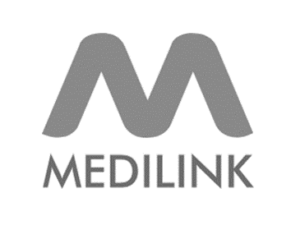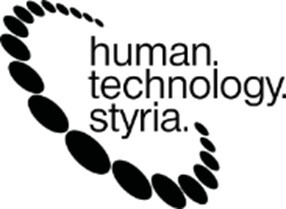Recent advances in HealthTech are significantly transforming cancer treatment, making therapies more precise, less invasive, and tailored to individual patients.
Key innovations include:
- Precision Oncology and Genomic Medicine
- Artificial Intelligence (AI) and Machine Learning
- Liquid and Synthetic Biopsies
- CAR-T Cell Therapy and Gene Editing
- Minimally Invasive and Quantum-Enhanced Surgery
- Immune Checkpoint Inhibitors and Cancer Vaccines
- Targeted Chemotherapy and Novel Drug Development
- Integration of Microbiome Science
Key Innovations:
Precision Oncology and Genomic Medicine
Precision oncology studies the genetic and molecular characteristics of tumors in individual patients to identify specific changes driving cancer growth.
This allows for personalized treatments targeting those changes, which reduces harm to healthy cells and minimizes side effects compared to traditional chemotherapy. Large-scale projects like the UK’s 100,000 Genomes Project have integrated genomic data from thousands of tumor samples to improve treatment accuracy.
Artificial Intelligence (AI) and Machine Learning
AI technologies are being deployed to enhance cancer screening, diagnosis, and treatment planning. For example, AI-based risk profiling helps early detection of common cancers such as breast cancer, and AI algorithms can analyze imaging like X-rays to identify cancers in regions lacking expert radiologists.
AI also aids in analyzing tumor microenvironments and predicting treatment responses, particularly for immunotherapies.
Liquid and Synthetic Biopsies
Liquid biopsies offer a less invasive alternative to traditional tissue biopsies by detecting cancer markers in blood samples, enabling earlier and easier diagnosis.
Synthetic biopsies are emerging technologies that can trigger cancer cells to reveal themselves at very early disease stages, potentially improving outcomes through earlier intervention.
CAR-T Cell Therapy and Gene Editing
CAR-T cell therapy genetically modifies a patient’s immune T cells to recognize and destroy cancer cells. This approach has shown durable remissions in leukemia and lymphoma patients, with some cases maintaining remission for over a decade. However, there are ongoing safety investigations regarding secondary cancers linked to this therapy.
Advances in gene editing tools like CRISPR/Cas9 are improving CAR-T therapies by enabling more precise and efficient modifications, including development of off-the-shelf CAR-T cells from donors, which could make treatments more accessible and scalable.
Minimally Invasive and Quantum-Enhanced Surgery
New surgical technologies, such as a quantum sensor-integrated laparoscopic probe developed in Australia, allow surgeons to precisely map tumor spread, especially in gastrointestinal cancers.
This innovation improves detection of cancerous lymph nodes during surgery, reducing the need for extensive tissue removal and lowering the risk of complications and long-term side effects.
Immune Checkpoint Inhibitors and Cancer Vaccines
Immune checkpoint inhibitors block mechanisms that cancer cells use to evade immune detection, enhancing the immune system’s ability to attack tumors. Since the first FDA approval in 2011, many such inhibitors have been approved for various cancers. Personalized cancer vaccines, developed based on the unique mutations in an individual’s tumor, are also advancing.
These vaccines aim to train the immune system to recognize and attack cancer cells more effectively.
Targeted Chemotherapy and Novel Drug Development
Targeted therapies focus on specific genetic mutations driving cancer, such as HER2 in breast cancer and EGFR in lung cancer, significantly improving survival rates. Ongoing research is developing next-generation inhibitors for previously “undruggable” targets like various KRAS mutations, common in difficult-to-treat cancers such as pancreatic cancer.
Integration of Microbiome Science
Emerging research shows the human microbiome influences immune responses to cancer. Novel therapeutics based on microbiome interactions are being developed to make tumors more visible to the immune system, potentially enhancing the efficacy of immunotherapies like checkpoint inhibitors.
CONCLUSION
These HealthTech advances collectively represent a shift towards more personalized, precise, and less harmful cancer treatments, improving survival and quality of life for patients worldwide.
The integration of genomics, AI, immunotherapy, gene editing, and advanced surgical tools is accelerating progress in the fight against cancer.
SOURCES
- https://www.weforum.org/stories/2025/02/cancer-treatment-and-diagnosis-breakthroughs/
- https://www.aacr.org/blog/2025/01/10/experts-forecast-cancer-research-and-treatment-advances-in-2025/
- https://www.cancerresearch.org/blog/january-2025/ai-cancer
- https://www.gehealthcare.com/insights/article/staying-current-with-advances-in-cancer-care
- https://newsnetwork.mayoclinic.org/discussion/mayo-clinic-q-and-a-5-advances-in-cancer-treatment/
- https://www.labiotech.eu/in-depth/cancer-treatments-immuno-oncology/
- https://www.news-medical.net/news/20250408/Powerful-new-tool-promises-major-advances-in-cancer-treatment.aspx
- https://www.medstarhealth.org/blog/cancer-treatment-advances












